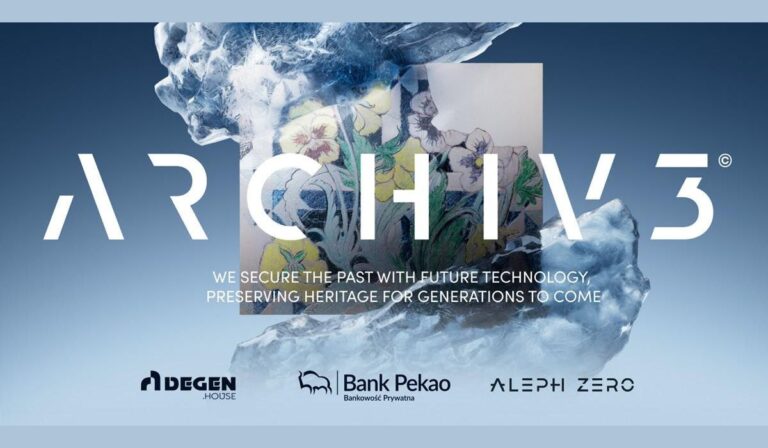advertisement
Pekao SA, Poland’s second largest bank, is proud to launch the Archiv3 project on the Aleph Zero blockchain, which aims to tokenize and preserve Poland’s cultural heritage.
Archiv3 was launched in partnership with Aleph Zero and Degen House, a layer 1 blockchain platform known for its speed, data privacy, and ease of development. Archiv3 will use the Aleph Zero blockchain to tokenize Polish cultural heritage and securely store digital copies in the Arctic World Archive (AWA), also known as the “Doomsday Library.” Pekao Bank hopes that this initiative will ensure the cultural significance of the masterpiece and serve as a resource for future research.
Archiv3 meticulously digitizes masterpieces by leading Polish artists such as Wojciech Cossack, Jan Matejko, and Stanisław Wyspianski. The artwork collection includes works from various historical periods, especially the 19th century. We also have modern works such as works by contemporary artist Ria Kimura. These parts will be facilitated by Degen House, which currently acts as the bank’s technology partner and is managing the integration of Aleph Zero.
According to the terminology behind the project, the process began by creating museum-grade, high-quality 3D scans using ultra-sensitive cameras. These cameras are designed to capture every detail of the original artwork for reproduction. Once duplicated, the digital replica was minted as an NFT on the Aleph Zero blockchain and archived at the Arctic World Archive. These digital replicas will remain secure in the AWA for at least 1000 years.
In particular, through the Archiv3 project, Bank Pekao has become the first universal bank to preserve and tokenize historical art. The project is part of the bank’s ongoing efforts to modernize its services and expand its reach within the digital market.
advertisement
Commenting on the launch, Michał Walęczak, Director of Private Banking Strategy Development at Bank Pekao SA, said:
“We chose Aleph Zero, which combines privacy-focused top-class technology with a sound experience from collaboration with large institutions. Minimizes carbon footprint and keeps storage costs low. These were also important factors in our decision-making process. Art tokenization requires modern, flexible technology, unforced creativity, and out-of-the-box thinking. I am glad that I was able to discover this in collaboration with you.”
Artic World Archive is a highly secure data repository created in 2017 to protect valuable cultural, scientific information, and historical resources. Located in the remote Svalbard archipelago, it is designed for long-term data storage without the need for human or electrical intervention. The valuable data preserved includes the Vatican Library, the entire GitHub code repository, UNICEF and UNESCO documents, and the literary works of Nobel Prize winners Wisława Szymborska and Olga Tokarczuk.


